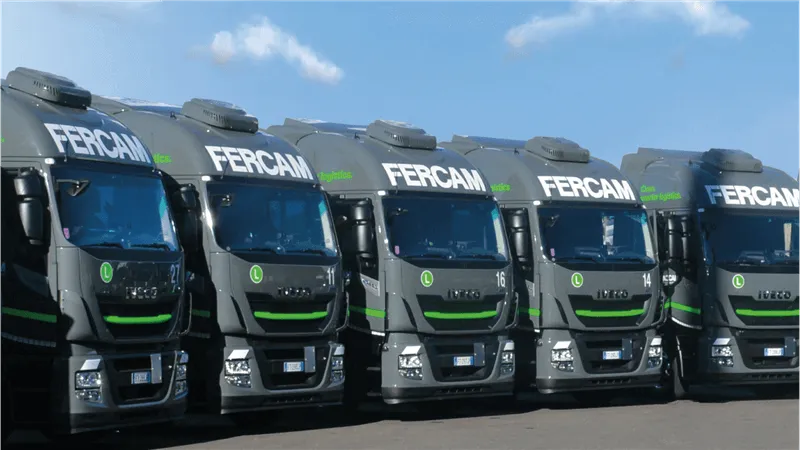Emission Free Transport
Alternative traction vehicles for medium and long-haul transport: a gradual phasing out of fossil fuels in favour of biofuels
HVO FUEL - Hydrotreated Vegetable Oil
FERCAM drives innovation towards more eco - friendly transportation
FERCAM is at the forefront of sustainable transport solutions through the use of vehicles powered by HVO, a renewable biofuel compatible with traditional Diesel engines. HVO is produced from waste vegetable oils, such as straw, algae, organic waste, agricultural residues, used cooking oil (no palm oil), ensuring reduced environmental impact and a no contrast with the food supply chain. Since December 2021, FERCAM has been testing this innovative biofuel in its vehicles in South Tyrol, used for services to hospitals in the Province of Bolzano and in daily transports between Bolzano and Munich. As of April 2023, all company-owned Diesel vehicles are powered by HVO biofuel. This initiative marks another step forward in FERCAM's journey toward increasingly sustainable and responsible transportation.
The benefits of HVO hydrogenated biofuel




Zero-emission electric transport
FERCAM’s electrification strategy is built on a gradual, operations-driven approach. The first step was the deployment of the eActros 300 City Tractor on short- and medium-haul routes. This real-world pilot phase allowed the vehicle to be tested in urban and regional operating conditions, while building hands-on expertise in managing a fully electric fleet and integrating electric vehicles into daily logistics processes.
This experience laid the groundwork for a natural evolution toward more advanced solutions. FERCAM subsequently introduced the Mercedes-Benz eActros 600 into its fleet, a fully electric truck designed to meet the demands of long-haul transport. With a range of up to 500 km, the eActros 600 now enables zero-emission shipments along major international corridors, without compromising service continuity, operational reliability, or industrial scalability.
BioLNG
- 99% reduction in particulate matter
- NOx reduction by 60%
- Reduction of vehicle noise compared to the threshold values of Euro V vehicles
- Up to -80% of emitted CO2

Intermodal transport
An eco-sustainable and efficient solution




























